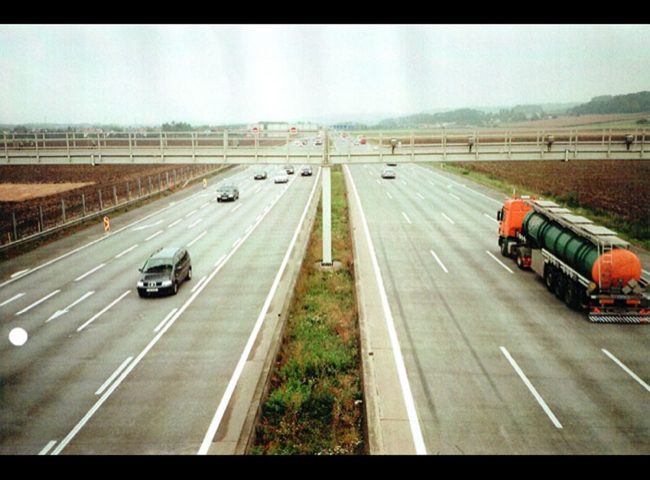Das Schlechte Feld
-
Réalisé par Bernhard Sallmann • Écrit par Bernhard Sallmann
-
Autriche, Allemagne • 2011 • 64 minutes • HDV • Couleur
- Réalisation :
Bernhard Sallmann - Écriture :
Bernhard Sallmann - Image :
Bernhard Sallmann - Son :
Christoph Krüger - Montage :
Christoph Krüger
- Production (structure) :
Feld Gbr Einsenberg - Coproduction :
Bernhard Sallmann - Ayant droit :
Feld Gbr Einsenberg
- N° ISAN :
non renseigné
Résumé
"Un lopin de terre situé à Ansfelden, bourgade proche de Linz en Autriche, désormais coincé dans un paysage encore rural traversé de voies rapides, voilà le héros du film, ce champ infécond du titre, dont Bernhard Sallman va nous conter l’histoire, puisque il y a vécu gamin, et que c’était propriété familiale. En plans austères et descriptifs, Sallmann cadre le champ, le village et ses environs pourtant dépourvus de toutes particularités. Leur fixité insistante fait face à la multitude anonyme des automobiles, fantômes glissant sur ces voies rectilignes, flux scandant le film. Très patiemment, Sallmann s’ingénie à lire les lieux, s’employant à nous faire entendre, en off ou en sous-titre étonnamment mobiles sur l’écran, les récits des uns et des autres. Se déplient alors les pages d’un livre d’histoires au seuil de leur effacement. L’on y apprend que le compositeur Anton Bruckner, récupéré par les Nazis comme héros romantique, y est né, que ce champ fut le cadre d’un camp de prisonniers, et qu’il fut plus tard le théâtre de scènes sinistres.
De la déploration de la disparition d’une certaine ruralité aux accents nostalgiques qui semblait sans surprise dicter le projet, nous voilà petit à petit, mais violemment, projetés dans l’Histoire, celle d’un recouvrement de l’horreur. Transmettre donc, exhumer de ce mauvais champ sa mauvaise mémoire, et ouvrir à une Histoire affranchie de ses refoulés, rendre corps aux disparus, voilà la visée : faire du film la possibilité d’un monument discret."
(Nicolas Feodoroff, FID Marseille 2011)
"A plot of land in Ansfelden, a village near Linz in Austria, now hemmed in a still rural landscape criss-crossed by highways, is the hero of the film, the infertile field of the title, the history of which is recounted by Bernhard Sallmann, who lived on the family property as a child. Sallmann films the field, the village and its rather banal surroundings with austere descriptive shots. Their insistent fixity contrasts with the anonymous multitude of automobiles, phantoms slipping by on the rectilinear routes, the flux providing rhythm to the film. With great patience, Sallmann contrives to read the sites, making us hear, through voice-overs and surprisingly mobile subtitles on the screen, the stories of one or another of them. Thus the pages of a book of stories on the verge of obliteration unfold leaf by leaf. We learn that the composer Anton Bruckner (who was appropriated by the Nazis as a Romantic hero) was born here, that it was the site of a prison camp during the Second World War, and that it was later the site of sinister scenes. From deploring the disappearance of a certain ruralism tinted with nostalgia which unsurprisingly seems to have dictated the project, we are gradually, but violently, projected into History, the history of covering up horror. The aim, therefore, is to
transmit something, to exhume the bad memory from the field, and open up to a History emancipated from its repressions, thus giving body to the dead and turning the film into a discreet monument."
(Nicolas Feodoroff, FID Marseille 2011)
Mot(s)-clé(s) thématique(s)
Sélections et distinctions
- 2011 • FIDMarseille - Festival International de Cinéma de Marseille • Marseille (France) • Compétition Internationale
Comment avoir accès au film ?
-
Édition DVD
- Il n'existe pas d'édition DVD à notre connaissance
-
Accès VOD
- Il n'existe pas d'accès en VOD à notre connaissance
- Distribution
- Aide sur les moyens d'accéder à un film
